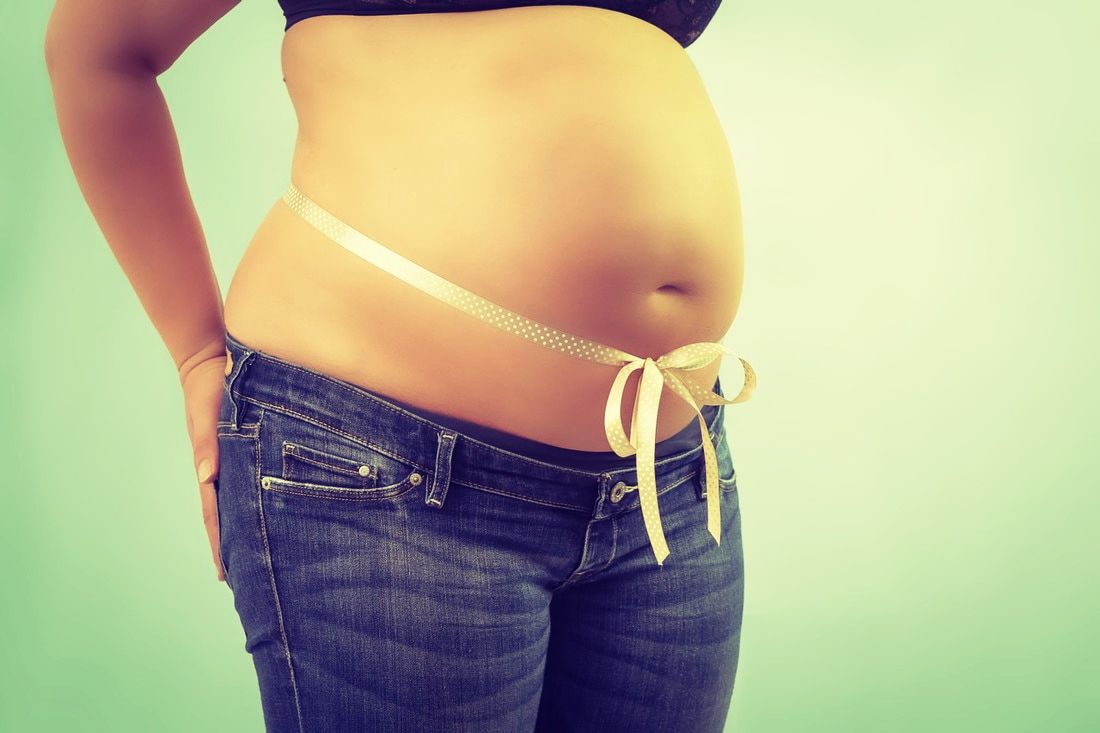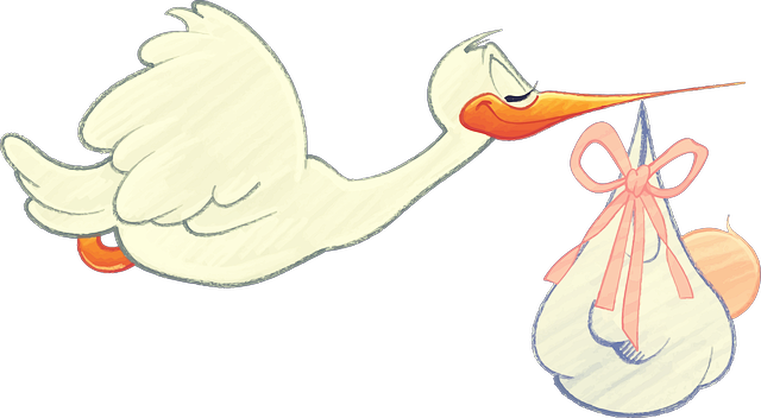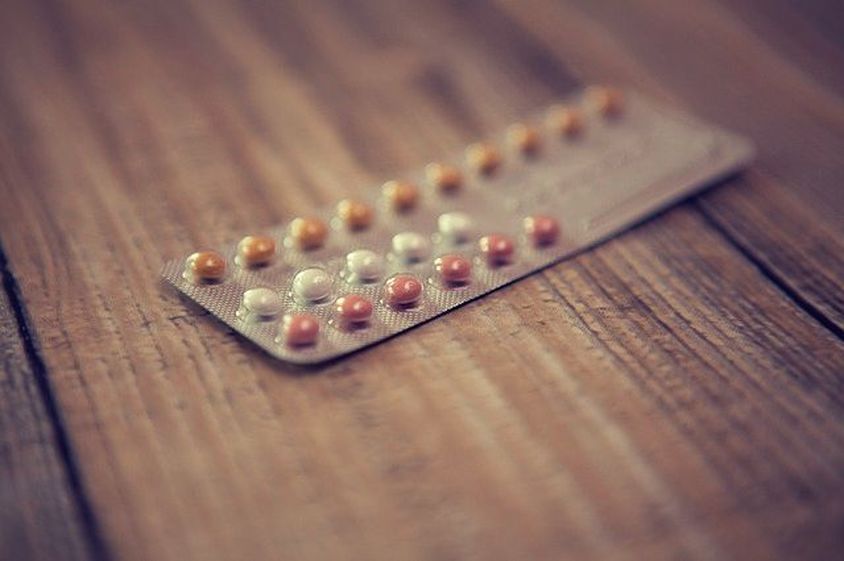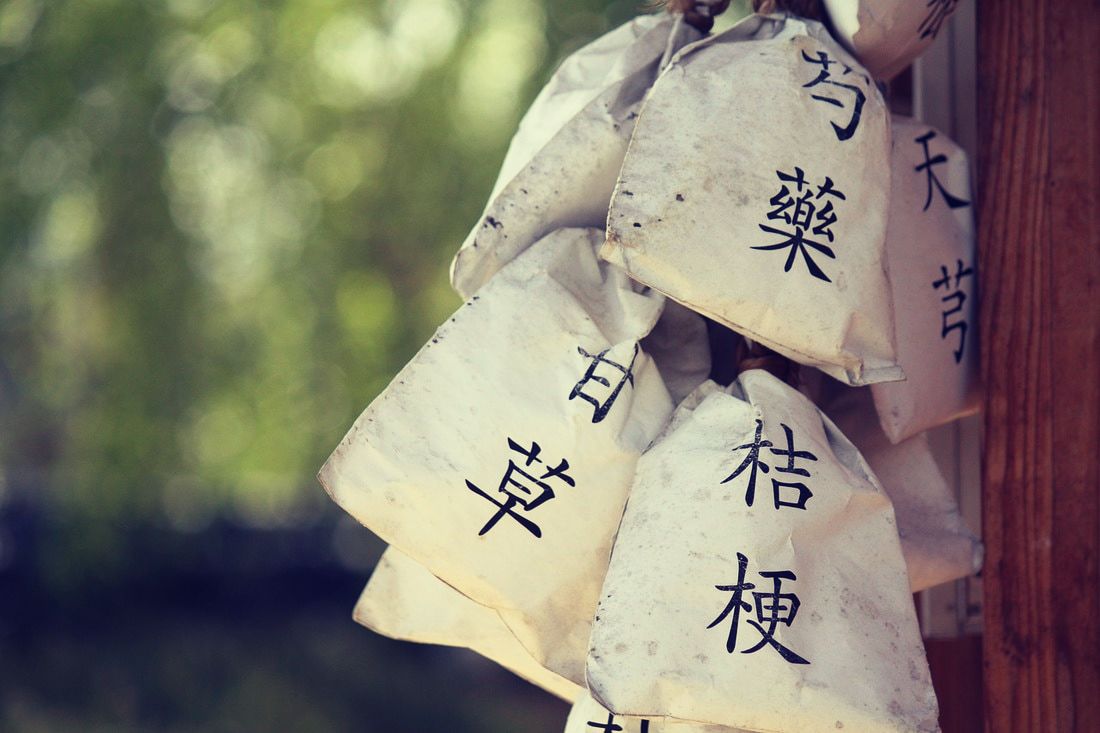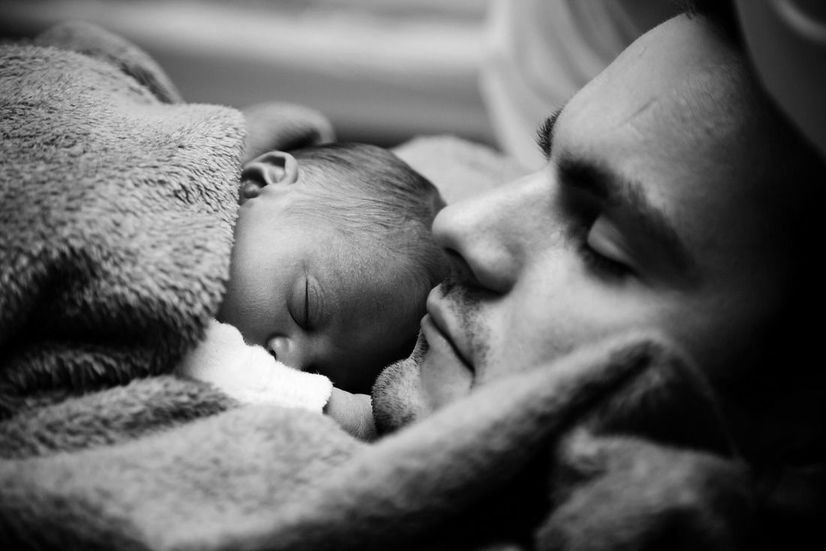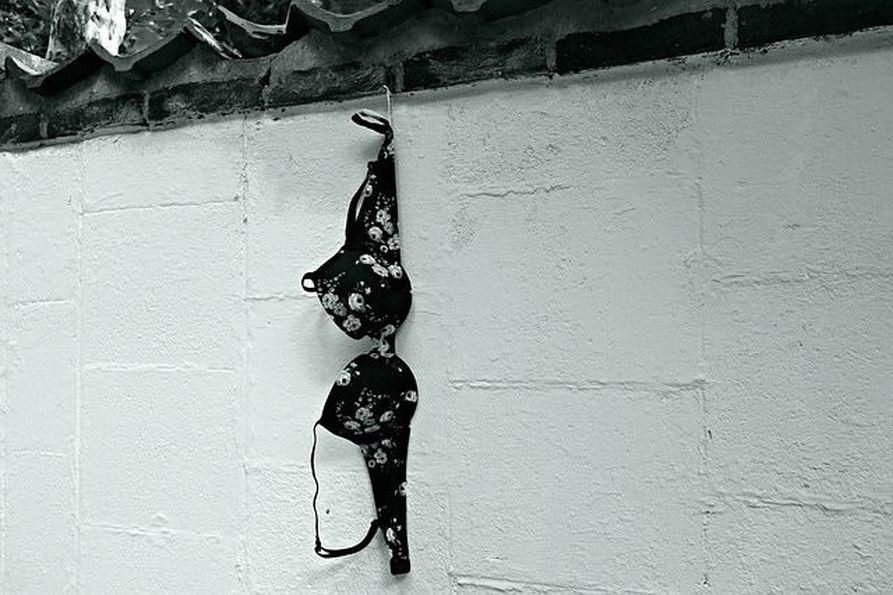|
I am so very excited to introduce the Postpartum Treatment which has been two years in the making. Having delved into the world of traditional postpartum care, I've put together a highly specialized treatment intended to help women recover from pregnancy and childbirth and feel deeply nourished, refreshed and replenished. The Postpartum Treatment is a very special healing session for women who have recently experienced pregnancy and/or childbirth. In Traditional Chinese Medicine it is said that women should “sit the moon” after giving birth — which means to not do anything strenuous for one month following giving birth, except for caring for baby and resting. This means staying home, relaxing, letting others clean, cook, do all other major thinking, lifting, work — essentially allowing themselves to rest while they recover from a major blood and Qi shift. They say that if during this very special time a woman is able to take enough rest and nourishment, her body and mind can become even stronger and more focused than prior to pregnancy. An old Chinese saying which addresses the significance of postnatal care is: “Eat well, sleep well, nothing is better than sitting the month well.” You can click here to read more about "sitting the moon" -- or "Zuo Yue Zi".
After this “moon”, or month, is over the Postpartum Treatment can be given. I recommend it for women who are one month to two years postpartum, although really for anyone who has experienced pregnancy/childbirth anytime in the past or could benefit from this deep healing session. This 1.5 hour long treatment works to replenish Qi and blood and refresh the body, mind and spirit. A series of 3-5 treatments over the course of 6 months would be ideal, but even just one session can have remarkable results. After having my son I noticed a lack in normalized postpartum care and really want to contribute to working towards filling this gap. I want women to feel empowered, supported, connected and stronger than ever in their new role. I have researched traditional and modern rituals for postpartum women and created this specialized treatment which integrates Traditional Chinese Medicine with other alternative therapies. Women are in need of the utmost support following pregnancy and birth. Their bodies, identities, roles in life and spirits have all undergone a massive shift and without proper attention to healing they can suffer from all kinds of mental and physical health problems. Our society is very focused on women “getting back to normal” as fast as possible following pregnancy when this is a highly unrealistic goal — there is an entirely “new normal” postpartum, and that is ok, and that needs to be supported.
Each part of this session has been carefully crafted to create a deeply healing environment that truly nurtures a new mama. The Postpartum Treatment involves aromatherapy, hot stones on the energetic meridian known as the “conception vessel”, acupuncture, hand, foot and scalp acupressure massage, infrared heat therapy, the burning of traditional herbs like sage, palo santo and mugwort, and so much more. One of the key components of this session is a Traditional Chinese Medicine technique known as “closing the life gates” which involves moxibustion, the burning of mugwort to warm specific areas of the body to protect the Qi of the mother who has been, until then, giving much of her own Qi and blood to a new life. This ritual helps to ensure the "life gates" are closed and that a woman's Qi and Blood can be used to nourish her own body. I hope this new offering will bring deep healing to any woman who is recently postpartum; this could include women who did not carry to full term as well as those new mothers who are probably feeling pretty ungrounded in their new roles and new bodies. If you or anyone you know could benefit from this treatment, please feel free to share this post — you can book The Postpartum Treatment with me at Sage Wellness on Wednesdays or Saturdays.
x About 3-4% of babies decide they don't want to get into the traditional birthing position and instead of head down, they put their bum down. This presents a problem for a lot of moms and medical practitioners as it generally makes for a tough decision: go ahead with a (now more complicated) vaginal birth or schedule a c-section. Lots of women seek out options for ways turn the baby -- one such way is with a little herb we in the Traditional Chinese Medicine world, call moxa. Acupuncturists burn this ancient herb close to the outer corner of the pinky toe, along with needling other strategic Acupuncture points. Visit your Acupuncturist for a few treatments to receive both Acupuncture and Moxa and they will teach you how to continue the moxa practice at home. This Traditional Chinese Medicine treatment for breech babies can be started as soon as it is identified that baby is breech and ideally repeated 2-3 times a day. This is generally done for several consecutive days (2 weeks is ideal). I'm the first to admit this is totally weird -- even weirder is that it usually works. Check out this study. If you are trying to avoid scheduling a c-section for your breech baby, give moxa a try! I’m on maternity leave until July 5th — but you can book in with me for Acupuncture now and reserve your space! Click here to book or call my clinic at (613) 235-7243 for more info :) Last time in my Making Babies blog post series, I talked about estimated due dates and synthetic oxytocin for induction. In this post I talk about Acupuncture for labour induction, a great natural alternative if you want to encourage the onset of labour... In my practice I have induced quite a few ladies with great success. Acupuncture is an excellent alternative to medical induction as it has zero adverse affects and works by helping enhance the body’s own natural processes. In parts of Asia, it has been used for centuries to encourage the onset of labour. Traditional Chinese Medicine uses acupuncture on specific points of the body to stimulate the natural release of hormones that soften and ripen the cervix which help prepare the body for birth. Most women who have reached 40 weeks + of pregnancy need between 1-3 treatments before labour begins, which typically starts anywhere between 6-24 hours after a treatment — although, I have seen a few women start contractions during the 1 hour session. With doctor or midwife approval, it is safe for a low-risk mother who is post-due to receive Acupuncture Induction Treatments on consecutive days. Pregnant woman can benefit from labour induction acupuncture with no prior acupuncture experience. It’s important to note that because Acupuncture is a natural way to encourage labour, needling will NOT cause contractions before the baby is ready to be delivered. The latest research suggests the process of labour is actually triggered by signals from the baby’s body — but Acupuncture works on preparing the mother’s body to be as ready and supported as possible to receive these signals. Acupuncture keeps a mother’s body open, strong and relaxed so that when the baby is ready, labour progresses smoothly. Acupuncture Labour Induction also decreases a mother’s stress and anxiety which is crucial in promoting a healthy, complication free delivery. In some cases, Acupuncture has been said to reduce active labour time and helps mother and child experience a gradual, less-traumatic onset of labour than with medical induction. If you are pregnant and are looking for gentle alternatives to oxytocin induction or just want to encourage baby to hustle and help prepare your body for birth, book in for Acupuncture for Labour Induction. I’m on maternity leave until July 5th — but you can book in with me for Acupuncture now and reserve your space! Click here to book or call my clinic at (613) 235-7243 for more info.
Did you know there are large variations in length of time for an individual baby to mature fully during pregnancy? Some babies are mature as early as 37 weeks (259 days), and others need 42 completed weeks (294 days) and sometimes a bit more to be fully ready. The "due date" is just an estimate! This general estimate is based on the first day of your last period, and it assumes all women have the same cycle length. It doesn't take into account longer cycle lengths, late or early ovulation. It isn't an exact science. Early dating ultrasounds are generally pretty accurate when done before 12 weeks gestation, but still have about a 5 day variable and accuracy depends greatly on the technology being used, as well as the skill of the technician. It isn't totally clear to me why medical practitioners are so keen to "get things moving" once you hit 40 weeks -- it is protocol to women that they will be induced at 41 weeks plus three days. Some women totally don't mind this (it is a long wait!) but others may because using synthetic oxytocin to induce has risks associated with it and often causes a more difficult labour. It can also trigger a series of medical interventions that some women prefer to avoid, like the increased likelihood that an epidural will be requested or a higher chance of a c-section. Sometimes medical induction is necessary, for example if you have high blood pressure or your baby isn't thriving, but often induction at 41 weeks and 3 days is just following a widely applied protocol. You may not even truly be at 41 weeks and 3 days because of the potential variability of your estimated due date! Talk to your health care provider about your options. If all is going smoothly and baby simply isn't budging, you could try alternative labour induction methods (like Acupuncture!) that have a gentler, less invasive effect. Whats great about Acupuncture Induction is that it simply helps to speed up the natural processes of the body -- there is no synthetic oxytocin involved & therefore the normal risks involved with induction isn't part of it. If you are pregnant, educate yourself about this kind of thing :) I found this article to be a great resource. I’m on maternity leave until July 5th — but you can book in with me for Acupuncture now and reserve your space! Click here to book or call my clinic at (613) 235-7243 for more info. In this post in my Making Babies series, I talk about what the birth control "period" actually is, and why it sometimes takes a while to conceive when you stop taking it. I treat a lot of women in their 30's who have been on birth control since their late teens. Often, they have stopped taking the pill to get pregnant and are having a hard time or are still on the pill and are experiencing odd symptoms (like hot flashes). Pop medicine states that there is no need to take a break from the birth control pill -- which seems counter intuitive when you consider the strong actions of this drug. The birth control pill works by blocking ovulation and natural hormonal flux. You never get a true period -- just placebo pills that cause monthly withdrawal bleeding similar to a period. If you are 33 and have been on the pill since you were 19, your body has had more than an entire DECADE without having to self-regulate hormones. This is great for preventing unwanted pregnancies, but definitely has an effect on the body. Effects of stopping the pill can range from irregular ovulation and cycles to odd digestive behavior or migraines. This doesn't mean the female body is incapable of restarting its natural cycle eventually -- but it does mean that it may take a while before this happens. The time it takes for your body to readjust after stopping the birth control pill can greatly impact the chances of getting pregnant and many of my female patients worry this is some sign of definite infertility. It is not. Don't worry if your body doesn't immediately return to a regular cycle, or you are taking several months to conceive, or you're hormones are off balance. With time (and maybe a little acupuncture) you will resume a healthy menses. I think this little Q & A nicely sums up how the birth control pill works and why there is even a false period to begin with. I’m on maternity leave until July 5th — but you can book in with me for Acupuncture now and reserve your space! Click here to book or call my clinic at (613) 235-7243 for more info. In this post in my Making Babies series, I talk about how Acupuncture is effectively used to enhance fertility for couples who are trying to conceive. One of the most common reasons patients come in for Acupuncture treatments is to enhance their fertility, below is a great video summarizing why 1 in 4 couples seek Acupuncture to help them conceive:
Generally speaking it takes most of my patients about 3-5 months of regular acupuncture treatments, combined with following at home fertility advice, to get pregnant. The goal of my fertility treatments is not just to help a woman become pregnant, but to enhance her overall health so she has a healthy, full term baby. Among many other health benefits, acupuncture can provide better blood flow to the ovaries and uterus, creating stronger nourishment to these areas as well as helping to regulate hormones, menstrual cycles and calm the mind and body to optimize fertility. Acupuncture can also treat men for increased virility. Sometimes people seek out Western Medicine to help conceive if they believe they have a more complicated issue or it has been over a year of actively trying to have a baby with no luck. Acupuncture can be a great adjunct to these more invasive procedures and has been proven to help increase chances of fertilization with things like IVF. If you would like to learn more about Acupuncture treatments for fertility, please take a look at this article or contact me. I’m on maternity leave until July 5th — but you can book in with me for Acupuncture now and reserve your space! Click here to book or call my clinic at (613) 235-7243 for more info. Continuing with the last post's topic on the Fourth Trimester and the importance of rest following the birth of a new baby, in this Making Babies post, I explain a bit about the Chinese tradition of 'Sitting the Month' in which a new mom is taken care of for a month after giving birth in order to maintain her longevity and health. I also offer some Acupuncturist's advice on how to heal postpartum in a modern Western context. In China, they refer to the month after delivery as “Yue zi” and it is considered a very important time to focus on the new mother’s recovery: physically, emotionally and energetically. It is in this period of time (a minimum of 28 days, or a moon cycle) that a woman can be most vulnerable to pain, depression, and hormonal problems. If she pushes herself too hard after giving birth, it can lead to premature aging, chronic hormonal/emotional imbalances, and other health problems. This period is called "sitting the month" and traditionally, women stay in bed and just feed the baby and rest. They aren't to do any work of any kind so their bodies can heal and they can regain their energy. During this time, their mother stays with them and basically does every thing for them -- cooking, cleaning, changing the baby, washing the baby, everything! All that the resting mother does is feed the baby and regain her health. Mother and baby do not leave the house during this time and demanding visitors are not allowed over for a month. Chinese Medicine takes a long term view to health and wellness and argues that the degree to which a woman takes care of herself (and is taken care of) during this period directly affects her continued health, even influencing her experience of menopause. Although it might be hard to get your mom to come over to do everything for you for a month, you can still have a nurturing postpartum recovery -- below are several simple recommendations to help regain health and balance in the postpartum period. Postpartum Tips for Regaining Vitality: Get Ample Rest Lie down, rest, let the housework & cooking be done by someone else — your partner, your mom, your friend, or hire a cleaner if that is an option for you. Do not push yourself, you want to allow your body to heal or you could end up with long term health issues and premature aging. You don’t want that! Focus on your baby. Sleep when they sleep. Seriously though, do it. Everything else can wait. Limit Exertion and Stress Avoid heavy exercise or sweating. If childbirth wasn’t enough over-exertion, heavy exercise will further deplete an already weakened body. When feeling stronger, try to find time for gentle activities such as walking or yoga to restore the normal circulation of Qi and blood. Heavy lifting should be avoided for the first four months in order to minimize the risk of uterine prolapse and to allow the pelvic tissues to completely heal and renew. It is said that heavy physical work or exercise shouldn't be resumed until the 4th or 5th month postpartum. Stay Warm Stay away from cold drafts, cold weather and avoid cold or raw food and drinks. Keep your head and neck covered if needed. Avoid being beside the air conditioner. Eat Well In Chinese Medicine, postpartum moms are Qi and blood deficient. Digestion can be poor and there is a great demand for nutritious food in order to form breast milk. Warm, nourishing and easy to digest foods are best. Avoid raw, greasy, cold or frozen foods and drinks. Even cold water is not ideal. Foods to include:
Click here to check out an excellent pdf on Diet and Postnatal Recovery. Visit your Acupuncturist After regaining some strength at home, try to develop a recovery regime in which you take some self-care time to rebuild your body and mind. Visit your Acupuncturist, who is well versed in the ancient form of Chinese Medicine and can help guide you through your recovery. They will use various modalities of healing specifically suited to help you rebuild your Qi and blood, including: Acupuncture, Moxabustion, Diet & Herbal Therapy, Tuina (Chinese Massage), Cupping & Movement Therapy (Qi Gong), & at home self-care advice. Click here for more information. I’m on maternity leave until July 5th — but you can book in with me for Acupuncture now and reserve your space! Click here to book or call my clinic at (613) 235-7243 for more info. Want to read more about Chinese Medicine & Postpartum? Check out these resources:
https://www.ncbi.nlm.nih.gov/pmc/articles/PMC5059536/ https://www.jadeinstitute.com/jade/postpartum-care-optimal-health.php http://heartandhandscommunity.ca/chinese-medicine-wisdom-and-post-partum-recovery/ https://earthmamasweb.wordpress.com/2007/02/25/post-partum-care-with-traditional-chinese-medicine/ http://www.somastudio.net/2014/08/supporting-post-partum-health-with-traditional-chinese-medicine/ In this installment of 'Making Babies', I go into the need for peace, rest, quiet and privacy as mother and baby get accustomed to their new lives. There is a concept within baby culture that suggests there is a fourth trimester -- the first 3 months after the baby is born. This trimester consists of baby becoming used to being a human outside a controlled warm environment. A time where they just need a lot of snuggles, sleep and attention as they get accustomed to their surroundings and learn how to do stuff like eat, and breath. I propose that this fourth trimester extends to the mother as well (and extends further to her partner) as one becomes comfortable in the role of parent to this new being. This is a very delicate time for both mother and child. Both require rest, nourishment and zero extra stress since the stress of adjusting is already omnipresent. New moms need to heal and rejuvenate their body and mind, free from any added pressures. It is time to really be present with each moment. This is possibly the biggest life change one can experience and it is important to honour this transition and allow the time needed to really get into a new groove. For this, I suggest a babymoon. Not the trip with your partner while pregnant -- rather a time when new parents and their babies hibernate for a while following birth, without a slew of visitors. Some people may only want a few days, I'm personally requesting a couple of weeks -- some cultures and people extend this time to about 1 month. I will have my mom and maybe a couple of close friends pop by quickly to help me out if needed, but overall I'm going to just hibernate with my baby and his dad. Unfortunately, this is not the most popular idea. I learned this firsthand when my in-laws reacted similarly to kids that had just been told there is no Santa Clause when I said I wanted 2 1/2 weeks before an out of town visit. They rallied and said they understood, but they are not super keen on the idea of waiting. The friends I've told about my 2 week babymoon who are moms have been really supportive and said "Absolutely, you will NEED that, I wish I did that." At first, I felt really bad for even requesting some down time, but have since decided it is simply what is best for me and mine. Maybe you thrive off visitors, in which case this is a take what serves you situation ;) It's normal for everyone to be excited and want to see baby, but you must keep in mind what is best and healthiest long term. It's OK to put your needs and wants ahead of others' at this time! You are looking out for your baby and your physical and mental health. People will get over it and the time you set out for yourself and your new family is precious and fleeting. Schedules will be weird, you may not have slept for more than 1 hour at a time for days on end so you may be a bit weird, you might be learning to master breastfeeding, you might be weepy, irritable or giddy because of the sleep deprivation -- all things I, personally, would prefer to go through without an audience. Entertaining visitors is pretty much the exact last thing I want to do when I'm wearing pad-sicles with frozen aloe vera on them -- you know? Having a bunch of different people around a newborn isn't all that great for baby either. It would be most comfortable for baby to spend the vast majority of their time in the arms of their parents. Theirs are the scents and sounds they are familiar with. Being bombarded with the smells and different voices and energies of your parents, grandparents, siblings, friends, neighbours and co-workers could be confusing and uncomfortable for a baby. Also, they have pretty weak immune systems and being exposed to that many different germs at once might lead to a sick baby! Babymoon Ideas:
As always, this is just what I think :) Some people may feel too isolated with this kind of thing - it totally depends on each individual family! Listen to your own intuition and needs. Do what you feel. Up next in my Making Babies series of posts, I talk about postpartum care in Traditional Chinese Medicine. In this third post in my Making Babies series, I discuss some specific medical protocols and how, sometimes, they might just be obsolete... Did you know that within an hour after a baby is born, doctors and midwives are required by Health Canada to put a antibiotics in babies eyes (poor little guys!). This outdated practice, as pretty much every progressive health care practitioner agrees, is completely unnecessary, intrusive, and ineffective. Check out this two minute video for a briefer on the subject: These eye drops are meant for mothers with STIs like gonorrhea or chlamydia to prevent them from passing these infections on to their newborn and potentially causing eye issues. The thing is, they aren't very effective, nor does every mom have these sexually transmitted infections, and there are other, more effective ways to treat these STIs. Read more about this here and here. Thankfully, parents now have the choice to decline these antibiotics. You simply inform the medical staff that you don't want erythromycin, and they will give you a waiver to sign. This outdated practice highlights a little problem in our medical system: obsolete yet standard medical protocols. Although this antibiotic eye drop protocol has been repeatedly challenged by front line medical professionals, as well as parents, the procedure still continues. I guarantee that in 5-10 years they will no longer be routinely administering these antibiotic eye drops, but this change has simply not yet happened. Standard medical protocols are dictated by government, which can be slow to change, so sometimes protocols get "stuck". These protocols generally were the best line of treatment for a specific time period, but in light of new evidence have been proven not to be. Medical knowledge evolves but new protocols are sometimes slow to get approved and implemented. I've come across a few other standard medical protocols that I, personally, think could use some review, which I will list below. Some people totally don't mind just following protocol and that is fine, but me, I like to avoid any unnecessary medical interventions & thought I'd share the things I'm most likely opting out of. You have the right to as well! Of course, it is important to discuss these topics with your medical provider and figure out what is best in your particular case. If you have a health condition or your baby isn't thriving, these medical protocols could save you -- that is what they are intended to do. Always be wise! Medical Protocols that might be overused/unnecessary: Stretch and Sweep Besides being the grossest, most alarming possible name of something that someone is going to do in your vagina, this common procedure is said to aid in helping move along labour by manually separating the membranes of the amniotic sac surrounding your baby from your cervix. This separation releases hormones (prostaglandins), which may kick-start your labour. It often causes cramping and bleeding, and is described anywhere between unpleasant to painful. If you have a complication like high blood pressure or just really want the baby out, this is perhaps something drug free to try and tip the scales and start the cascade of hormonal events that trigger labour. That being said, I am of the school of thought that the baby will come when it is ready and this might just be an uncomfortable and unnecessary addition to the waiting game. Read more about stretch and sweeps here. Labour Induction with Synthetic Oxytocin I will be discussing this more in depth in a future post, but put very simply: Due dates are just estimates and healthy natural labour can start anywhere from 38-42 weeks. Standard medical protocol in Ontario is that at 41 weeks and three days you will routinely be induced by synthetic oxytocin. The iffy part of this is that on average, a first time mother will naturally go into labour at 41.3 weeks. If the estimated due date is inaccurate by, let's say 5 days (which even the best ultrasound techs say is the closest they can guarantee), or the mother had a longer menstrual cycle and ovulation was later than a textbook case, we could be routinely inducing women with artificial hormones earlier than the estimated '41 weeks and 3 day' marker. This isn't a big huge deal because babies are totally viable after 37 weeks, however, induction with synthetic hormones generally causes a more intense and painful onset of contractions, a higher likelihood to request an epidural and require the assistance of a vaccuum. Women who are induced are also at a significantly higher risk for c-sections. Something to consider. Routine IV set up It is standard practice in most hospitals in Canada that when a woman checks into the hospital she is given an IV for fluids and "just in case" they need to administer other things. If you have someone there to make sure you drink and eat enough & you are low risk, I'd opt out of it. Most modern medical practitioners don't mind, just say you'd rather not have the IV. I, personally, think it is more comfortable for women to not be hooked up to an IV and if a woman is more comfortable, the labour will be easier. There are situations where an IV is necessary. Please, again, talk to your medical practitioner about it. Vaginal Exams (every 2 hours) As I am writing this I am two days overdue. I saw my doctor yesterday, who works on a teaching team so when I go in, I see her and an intern. The intern informed me that when I check into the delivery ward I will be getting a vaginal exam every 2 hours to make sure "things are progressing". Um, A VAGINAL EXAM EVERY 2 HOURS? Pass. Hard Pass. I told my doctor I'd prefer minimal vaginal exams and she agreed every two hours is excessive and unnecessary. Each exam opens you up to potential infection and, as everyone is probably aware, is rather uncomfortable. Of course, if there are signs of trouble or it's been a while and nothing is happening I'll re-examine my stance on this but to just routinely check every vagina every 2 hours seems...a bit much. According to the World Health Organization, every 4 hours is sufficient and even then it isn't clear how much these help. Take a look at this study which states, "It is surprising that there is such a widespread use of this intervention without good evidence of effectiveness, particularly considering the sensitivity of the procedure for the women receiving it, and the potential for adverse consequences in some settings." I concur. Again, these are simply things I think aren't always needed medically and thought I'd share.
Maybe a vaginal exam every couple of hours provides comfort to some women to know that they are being monitored well and perhaps labour induction sounds awesome to a women who just wants to get the party started. I don't think my way is everyone's way. Please see my post on non-judgement. As always, take only what serves you. In the first post of my 'Making Babies' series, I talked about motherhood & non-judgement -- Here I delve into the hot topic of breastfeeding and the freedom mothers need to feel surrounding this. It wasn't until my 38th week doctor's appointment that a medical professional actually asked me if I wanted to breastfeed. I was caught off guard. I told her she was the first person to ask me that, everyone else just assumed I was. I wanted to hug her. Until this point, it was presented as if breastfeeding is the only option and I have been given tons of resources to help me achieve this ultimate goal of womanhood. I have been referred to classes on breastfeeding, videos on breastfeeding, given pamphlet after pamphlet of the benefits & how to find people who can come over to my house to help me breastfeed, told that nurses would come into the hospital room after I delivered and show me how to breastfeed, taught that a great latch is the key, you need this this and that, get a breast pump so you can get milked even when you aren't breastfeeding, and get special bags to store this milk. Do this every two to three hours for months. You must. Don't complain. Its going to hurt. You might need to go to special clinics or join support groups because its so hard to do. Make sure you don't confuse your baby by giving them breast AND bottle or you're going to ruin their lives. Always be available, never rely on someone else to feed your child. If this bothers you, you are a sub par woman. Basically, you must breastfeed or you are not a good mother. I understand that there are fantastic nutrients and immunity boosting magic in breast milk. Breast is best, I get it. Please relax. I will give breastfeeding my solid effort, but am not going to stress or freak out if I can't sometimes. I will also supplement with formula if I see fit, thank you very much. There are barely any resources talking about combining both breast feeding and formula feeding because this is such a controversial subject that the concept of doing both simultaneously is just totally groundbreaking (?), or women are scared to talk about it. Maybe it's just my limited personal experience, but I've had friends feel way too much pressure to follow some magic "right way" of doing this and end up feeling like absolute failures when they can't. I've heard stories of women who suffer anxiety and depression and feel terrible for not being able to breastfeed. Some women can't, some women can, some women want to and some don't. It's not really anyone else's concern. Here's a little reminder to those non-asking-breastfeeding-enforcer-people and something I've been wanting to say and something I hope all women feel they have the right to say or at least think: They're my breasts & my baby & my damn decision! That felt really good even just to type :) I'm literally hiding formula in my cupboard and have been too embarrassed to tell anyone but a few close friends that I'm doing so for fear of being ostracized by the breastfeeding police. It's my emergency sanity formula, OK? Sheesh. I may never use it, but I'd like to have that option. Please don't let anyone pressure you into doing anything you don't want to do. Don't agonize over not being able to breastfeed if that is your struggle, don't beat yourself up for it. Try your best, learn, study the master techniques and apply them. Check out this website for awesome tips & tricks. Breastfeeding can be really tough (as I'm currently learning) so take advantage of all the resources available - youtube has great videos, there are books, public nurses, and private consultations to guide you. For me, personally, just having some sanity formula waiting just in case brings me so much stress relief -- and to me that means a better mom. A nurse told me "Look, people are going to tell you so much differing advice. You have to just pick and chose what works best for you & your baby." Amen, sister. And to the "breastfeeding is the only way" or the "formula feeding all the way" people: Please just worry about your own personal life, and boobs, and stop pressuring or judging others. Next up in my Making Babies blog posts I'll be talking about some medical interventions that may not be as necessary as they are presented... |




